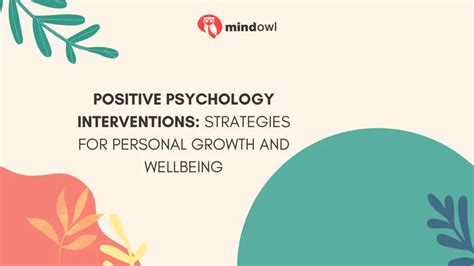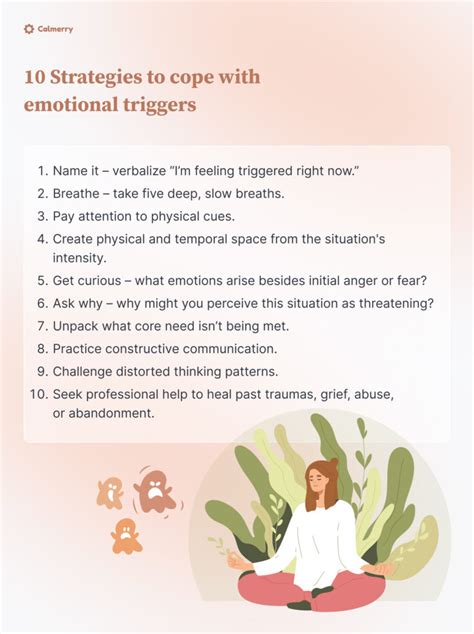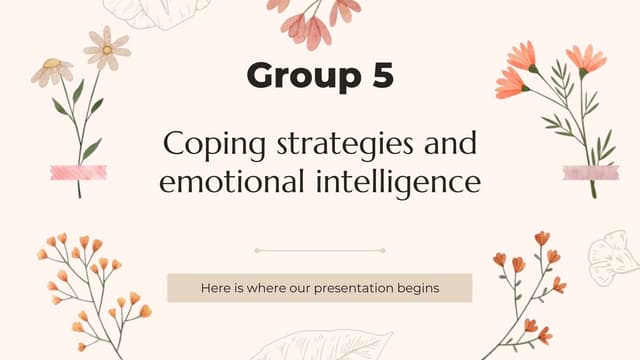In today’s fast-paced world, emotional intelligence (EI) is a vital skill for navigating personal and professional challenges. It involves understanding and managing our own emotions, as well as recognizing and influencing the emotions of others. Emotional intelligence is not just about empathy; it’s a cornerstone for effective communication, leadership, and stress management. This article explores the significance of emotional intelligence and provides practical coping strategies to enhance this crucial skill. By developing emotional intelligence, individuals can better handle stress, build stronger relationships, and improve overall well-being, leading to more successful and fulfilling lives both at work and in personal settings.
Investigate this topic thoroughly with rosawblog.com
1. Introduction
Emotional intelligence (EI) is increasingly recognized as a key factor in personal and professional success. In a world where interpersonal interactions are crucial, the ability to understand and manage one’s own emotions, as well as to empathize with others, is essential. Emotional intelligence goes beyond basic social skills; it encompasses self-awareness, self-regulation, motivation, empathy, and social skills. These components work together to help individuals navigate complex social environments, make informed decisions, and maintain emotional balance under pressure. This article delves into the concept of emotional intelligence, highlighting its importance in everyday life. It will also explore various coping strategies that can be employed to strengthen emotional intelligence, enabling individuals to better manage stress, foster healthier relationships, and enhance their overall quality of life. Whether in the workplace or in personal interactions, developing emotional intelligence is a powerful tool for achieving long-term success and well-being.

2. What is Emotional Intelligence
Emotional intelligence (EI) is the ability to recognize, understand, manage, and influence emotions—both our own and those of others. It comprises several key components: self-awareness, self-regulation, motivation, empathy, and social skills. Self-awareness involves recognizing our emotions and how they affect our thoughts and behavior. Self-regulation is the ability to control or redirect disruptive impulses and moods and think before acting. Motivation refers to being driven to achieve for the sake of accomplishment, not just for external rewards. Empathy is the capacity to understand and share the feelings of others, which fosters deeper connections and effective communication. Lastly, social skills are the tools we use to interact effectively with others, from managing relationships to navigating social complexities.
Unlike cognitive intelligence (IQ), which is relatively static, emotional intelligence can be developed and improved over time. By enhancing EI, individuals can better manage stress, make more informed decisions, and build stronger, more empathetic relationships. In essence, emotional intelligence is a fundamental skill that underpins both personal well-being and professional success, enabling individuals to navigate the complexities of life with greater ease and understanding.

3. Importance of Emotional Intelligence
Emotional intelligence is crucial in both personal and professional settings, as it directly impacts how we manage behavior, navigate social complexities, and make decisions that achieve positive outcomes. In the workplace, individuals with high emotional intelligence are often more successful leaders because they can inspire and influence others, manage conflicts effectively, and foster a collaborative environment. Emotional intelligence also enhances communication, allowing for more empathetic interactions that build trust and rapport.
On a personal level, emotional intelligence is vital for managing stress, maintaining mental health, and nurturing relationships. By understanding and regulating their emotions, individuals can cope better with challenges, avoid impulsive reactions, and create a more balanced life. Additionally, empathy—an essential component of EI—enables deeper connections with others, leading to more fulfilling and supportive relationships. Overall, emotional intelligence is not just about understanding emotions but using that understanding to enhance one’s life and the lives of others, making it a key determinant of success and well-being.

4. Coping Strategies for Emotional Intelligence
Coping strategies for emotional intelligence involve developing habits and techniques that help manage emotions effectively, particularly in challenging situations. One of the most important strategies is practicing mindfulness. By staying present and aware of your emotions in the moment, you can gain better control over your reactions and reduce impulsive behavior. Mindfulness can be enhanced through activities like meditation, deep breathing exercises, or simply taking a moment to pause before responding in stressful situations.
Another key strategy is self-reflection. Regularly taking time to assess your emotional responses and triggers can help you understand patterns in your behavior and identify areas for improvement. Journaling your thoughts and emotions can be a useful tool for this process, allowing you to track your progress over time.
Building empathy is also essential for improving emotional intelligence. Actively listening to others and putting yourself in their shoes can help you better understand their perspectives, leading to more effective and compassionate communication. Developing strong social skills, such as conflict resolution and active listening, also contributes to better emotional management.
Finally, seeking feedback from trusted peers or mentors can provide valuable insights into your emotional strengths and weaknesses. This feedback can guide your personal growth and help you develop a more balanced and emotionally intelligent approach to life’s challenges.
5. Techniques for Improving Emotional Intelligence
Improving emotional intelligence requires consistent effort and practice, but the benefits are well worth it. One effective technique is enhancing self-awareness by regularly reflecting on your emotions and their impact on your thoughts and actions. This can be done through mindfulness practices, journaling, or simply taking a few moments each day to check in with your feelings. Understanding your emotional triggers allows you to manage your responses more effectively.
Another technique is developing self-regulation skills. This involves learning to pause before reacting, especially in stressful situations. Techniques such as deep breathing, counting to ten, or stepping away from the situation can help you regain control and respond more thoughtfully.
Empathy, a critical component of emotional intelligence, can be improved by actively practicing perspective-taking. This means making a conscious effort to understand others’ feelings and viewpoints, which enhances your ability to connect with them on a deeper level. Engaging in conversations where you focus on listening rather than responding immediately can also strengthen your empathetic abilities.
Additionally, cultivating strong social skills is essential for improving EI. Building effective communication, conflict resolution, and teamwork skills helps you navigate social interactions more smoothly. Seeking out opportunities for collaboration and giving constructive feedback can further enhance these skills.
Consistent practice of these techniques will lead to greater emotional intelligence, ultimately fostering more successful and meaningful relationships in both personal and professional settings.
6. Case Studies
Case studies offer valuable insights into how emotional intelligence can be developed and applied in real-world scenarios. One notable example is a corporate manager who transformed his leadership style through emotional intelligence training. Initially, his approach was highly results-driven, often leading to strained relationships with his team. However, after engaging in EI coaching, he began practicing self-awareness and empathy. By regularly reflecting on his emotional triggers and making an effort to understand his team members’ perspectives, he was able to foster a more collaborative and supportive work environment. This shift not only improved team morale but also led to a significant increase in productivity.
Another case involves a teacher who struggled with managing classroom dynamics. By incorporating mindfulness and self-regulation techniques, she learned to remain calm in stressful situations, allowing her to respond to disruptive behavior more effectively. Additionally, by building empathy, she was able to connect better with her students, understanding their needs and challenges. This approach not only improved her classroom management but also created a more positive and engaging learning environment.
These case studies highlight how developing emotional intelligence can lead to meaningful changes in both professional and personal settings, demonstrating the power of EI in enhancing leadership, communication, and overall well-being.
7. Conclusion
In conclusion, emotional intelligence is a crucial skill that profoundly influences both personal and professional success. Understanding and managing our own emotions, along with recognizing and responding to the emotions of others, enables us to navigate complex social landscapes more effectively. The importance of emotional intelligence is evident in its impact on communication, leadership, and stress management, underscoring its value in achieving both individual and collective goals.
Implementing coping strategies such as mindfulness, self-reflection, and empathy-building can significantly enhance emotional intelligence. These techniques help individuals manage their emotional responses, improve their interactions with others, and foster a more supportive and productive environment. Additionally, the techniques for improving emotional intelligence, including developing self-regulation and strong social skills, further contribute to personal growth and effective relationship management.
Case studies demonstrate the real-world benefits of emotional intelligence, highlighting successful transformations in leadership and personal interactions. By applying the principles and practices discussed, individuals can cultivate a higher level of emotional intelligence, leading to more fulfilling and
rosawblog.com
